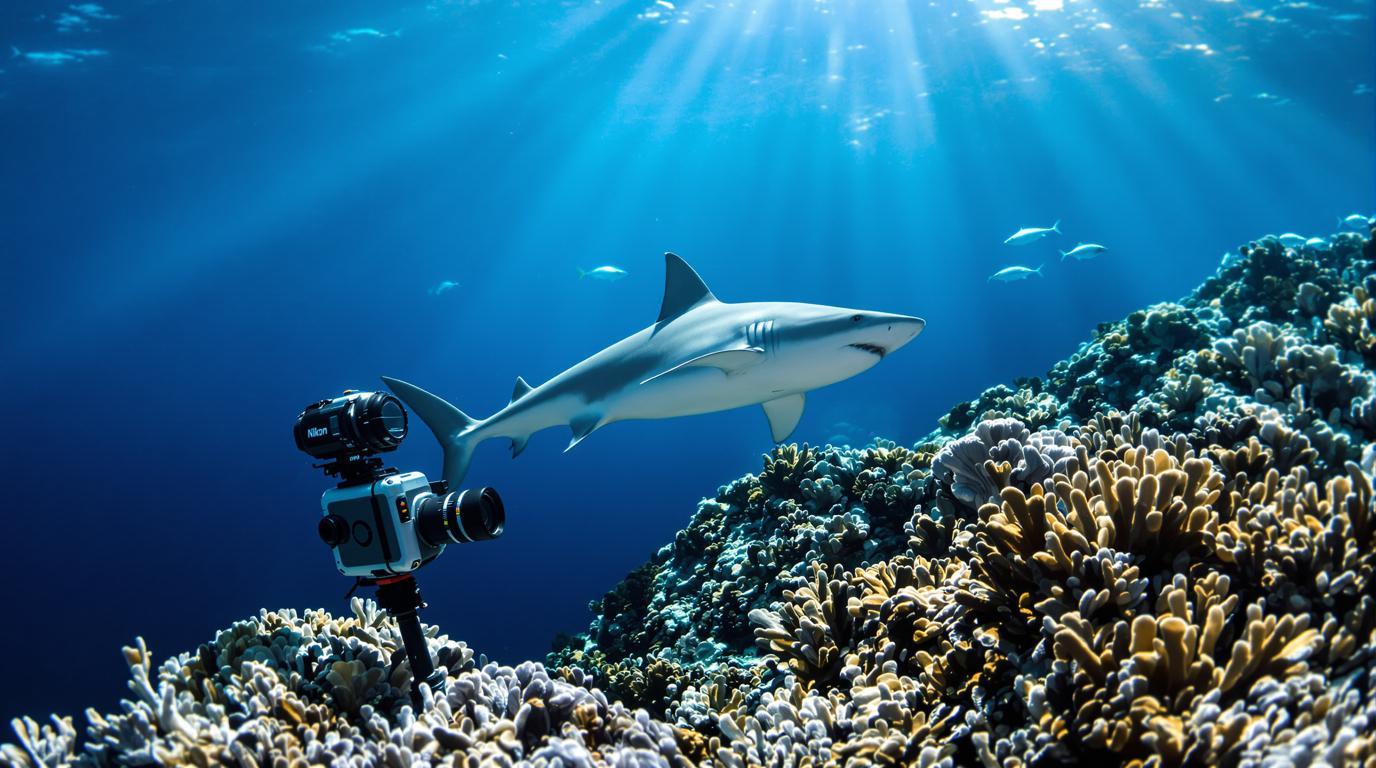In the azure waters of the Mediterranean, a misunderstood apex predator silently patrols depths that humans rarely witness. Great white sharks—creatures of fascination and fear—have maintained a secretive existence in these historic waters for millennia, though their presence remains largely unknown to most travelers and locals alike.
The Mediterranean’s hidden predators: Scientific confirmation
Recent research from Virginia Tech has definitively confirmed what many scientists long suspected: great white sharks not only visit but actively inhabit the Mediterranean Sea. Using cutting-edge environmental DNA sampling and baited camera systems, researchers have identified the Sicilian Channel as a particular hotspot for these magnificent creatures.
“What we’re seeing is a critically endangered population fighting for survival,” explains a marine biologist who participated in recent expeditions. “These sharks have been part of the Mediterranean ecosystem since ancient times, but their numbers have plummeted due to human activity.”
The Sicilian Channel: A shark nursery hiding in plain sight
Between Sicily and Tunisia lies what researchers now believe serves as a nursery ground for juvenile great whites. This revelation comes after multiple expeditions between 2021-2023 detected sharks at four different sites in this narrow strait, suggesting it plays a crucial role in their life cycle.
For travelers seeking unusual ecological experiences, this region offers a rare opportunity to support conservation while experiencing something few ever will. Much like Africa’s “inland sea of stars” with its incredible biodiversity, the Mediterranean holds secrets beneath its surface that most tourists never discover.
Understanding the Mediterranean great white
Mediterranean great whites differ from their Pacific counterparts in subtle but important ways. They tend to be slightly smaller, with scientists theorizing they’ve adapted to the sea’s more confined spaces and different prey availability. Their primary food source is bluefin tuna—itself an endangered species—creating a complex ecological balance.
“These sharks have evolved alongside human civilization for thousands of years. They were swimming these waters when Odysseus sailed, when Roman galleys crossed to Carthage, and when Napoleon’s fleet battled Nelson,” notes a local conservationist. “They’re living history.”
Safety considerations for ocean enthusiasts
Despite their fearsome reputation, attacks in the Mediterranean are extraordinarily rare. A widely reported incident in February 2025 near Monaco marked the first fatal encounter in decades, highlighting just how unusual such events truly are. For perspective, you’re more likely to experience trouble on ancient Greek footpaths than encountering a shark in Mediterranean waters.
Supporting citizen science while traveling
Travelers can contribute to conservation efforts through platforms like SharkPulse, which allows reporting of sightings. This participatory approach to science has proven valuable, especially in regions where research funding remains limited.
Some tour operators have begun offering specialized expeditions during summer months, similar to how aerial safaris showcase Africa’s wildlife migrations. These boats use non-invasive techniques like underwater cameras to potentially glimpse these elusive creatures.
Educational opportunities for curious travelers
For those fascinated but not ready to venture onto the water, renowned shark expert Alessandro De Maddalena hosts compelling lectures across Europe. His 2025 tour includes stops in Italy, Switzerland, and Austria, offering insights into these misunderstood predators without getting wet.
Conservation at a crossroads
The Mediterranean great white population stands at a critical juncture. Overfishing, ship traffic, and habitat degradation threaten their already precarious existence. Much like remote Caribbean islands with fragile ecosystems, the Mediterranean requires careful stewardship to maintain its natural balance.
“We’re witnessing the potential extinction of the Mediterranean’s apex predator in real-time,” warns a conservation researcher. “Without intervention, future generations may only learn about these sharks through historical accounts.”
The future of shark tourism
Responsible ecotourism could provide economic incentives for protection while raising awareness. Like Gaudí’s unfinished masterpiece, conservation work continues as an ongoing, generational project—one that travelers can now witness and support firsthand.
For those seeking extraordinary travel experiences, the Mediterranean’s hidden shark sanctuaries offer something truly rare: a chance to glimpse a living legend that has swum these historic waters since before human civilization began recording its history.
